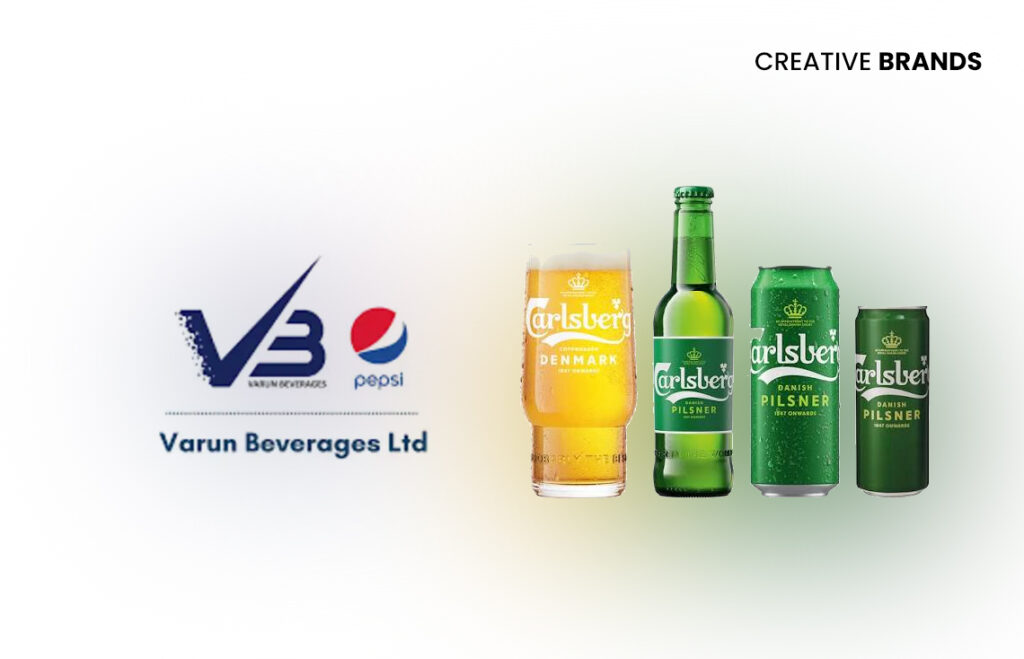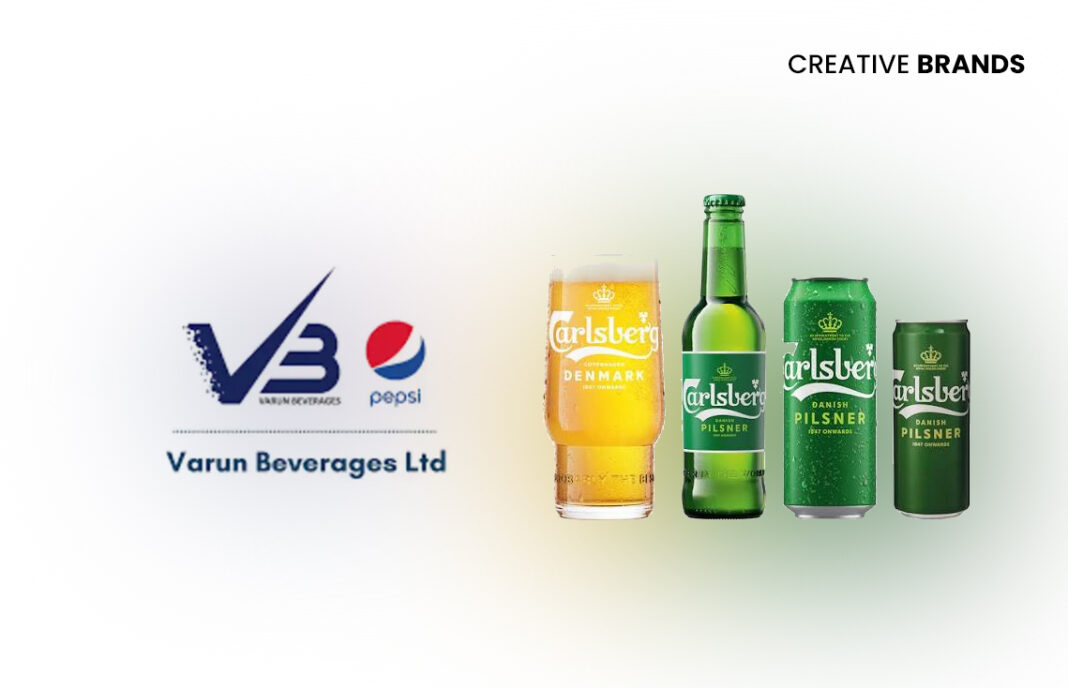Varun Beverages Limited has partnered with the Carlsberg Group to distribute Carlsberg beer in select African markets, marking its entry into alcoholic beverages. The company plans to expand into beer, wine, and spirits globally, and will establish a subsidiary in Kenya, diversifying beyond its traditional soft drink business.

In a bold strategic pivot, Varun Beverages Limited (VBL), one of India’s largest beverage companies and a key bottling partner for PepsiCo, has announced its entry into the alcoholic beverages segment through a partnership with the Carlsberg Group. The move marks a major diversification for the soft drink giant, positioning it for expansion into a high-growth global category.
Under the exclusive distribution agreement, VBL will test-market Carlsberg beer across select African countries where it already maintains a robust operational footprint. The partnership leverages VBL’s established distribution and manufacturing capabilities across Africa, a region that continues to be one of the fastest-growing markets for beer consumption.
As part of its broader strategy, VBL is also expanding its portfolio to include beer, wine, and spirits, not only in international markets but also within India — signaling its ambition to evolve into a multi-category beverage powerhouse. Complementing these efforts, the company plans to establish a wholly-owned subsidiary in Kenya to support its growing manufacturing and distribution needs across the African continent.
The announcement marks a turning point for VBL, which has long dominated India’s carbonated and non-carbonated beverage landscape through its association with PepsiCo. The company’s entry into alcoholic beverages underscores a strategic shift toward portfolio diversification and global scalability.
Industry observers see the partnership with Carlsberg — one of the world’s leading brewers — as a natural extension of VBL’s long-standing operational expertise. With Carlsberg’s premium brand portfolio and VBL’s deep-rooted supply chain capabilities, the collaboration is poised to unlock significant growth potential in Africa’s expanding consumer markets.
The African beer market, valued at over $30 billion, has seen steady growth driven by rising incomes, urbanization, and a youthful demographic. For VBL, which already operates beverage facilities in countries such as Zambia, Zimbabwe, Morocco, and Mozambique, this move represents both a risk-managed and synergistic diversification.
By integrating beer into its product mix, VBL aims to balance its traditionally seasonal soft drink revenues with a segment that enjoys year-round demand. The move is also aligned with global beverage trends, where companies are blurring category lines to capture wider consumer occasions — from refreshment to recreation.
Varun Beverages’ leadership has often emphasized its focus on long-term growth and value creation. The company’s expansion into alcoholic beverages reflects a strategic understanding of evolving consumer habits and emerging market opportunities.
India, where alcohol consumption is undergoing premiumization, also represents a potential future market for VBL’s alcohol portfolio. While regulations and regional licensing will shape the rollout, industry experts predict that VBL’s entry could bring new competitive energy to India’s organized alcohol segment.
By branching into beer, wine, and spirits, the company is building a future-ready beverage ecosystem — one that spans hydration, indulgence, and celebration. This evolution mirrors global trends seen among beverage giants like Coca-Cola and PepsiCo, both of which have experimented with alcoholic products in select markets.
Analysts view VBL’s partnership with Carlsberg as a well-timed strategic expansion, allowing the company to tap into Africa’s fast-evolving beverage market while mitigating the cyclical risks of its existing portfolio. With the planned subsidiary in Kenya expected to serve as a regional hub, VBL is reinforcing its long-term commitment to Africa’s consumer economy.
The partnership is expected to begin with pilot distribution in key urban centres, focusing on brand-building and consumer insights before a potential scale-up. If successful, the model could serve as a blueprint for future collaborations or independent ventures across other markets.
Commenting on the development, industry insiders noted that VBL’s move reflects a broader strategic ambition to become a global beverage conglomerate, not confined by category or geography. The alignment with Carlsberg — a globally respected brand — provides both credibility and momentum for this new chapter.
As VBL diversifies from its roots in soft drinks to enter the more complex world of alcoholic beverages, the company stands at a defining moment in its growth story — one where tradition meets transformation, and fizz meets froth.
Discover more from Creative Brands
Subscribe to get the latest posts sent to your email.






